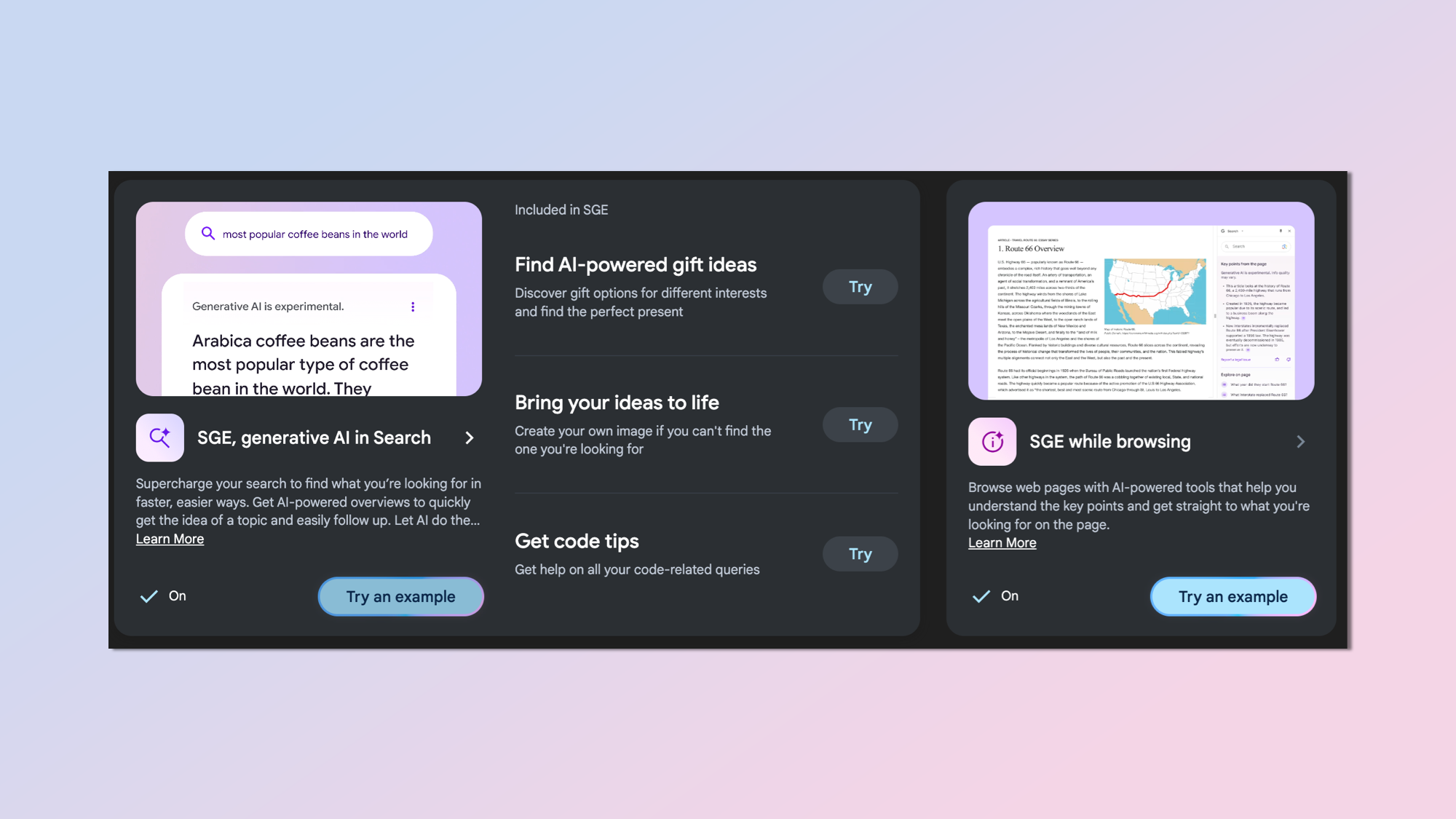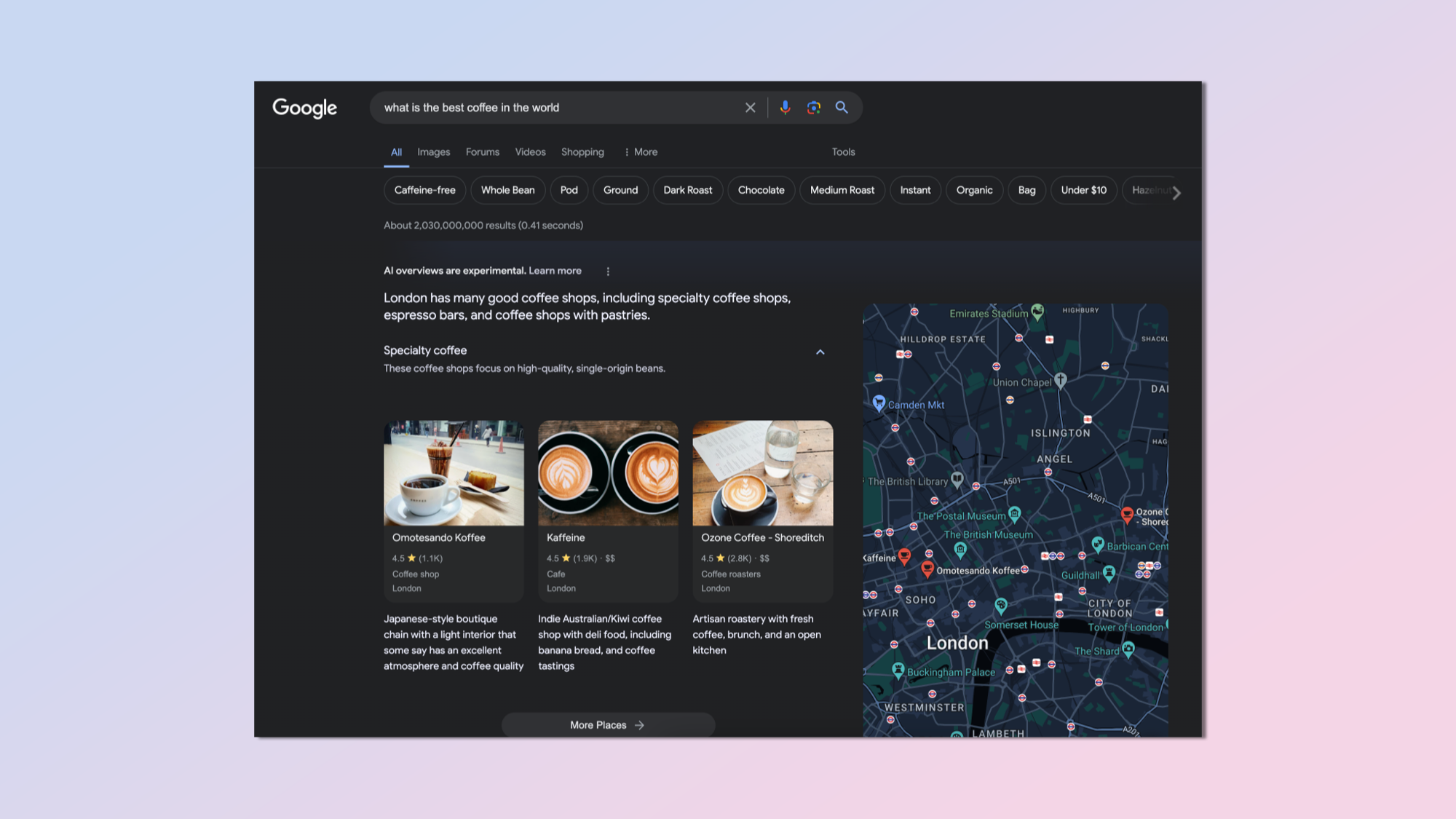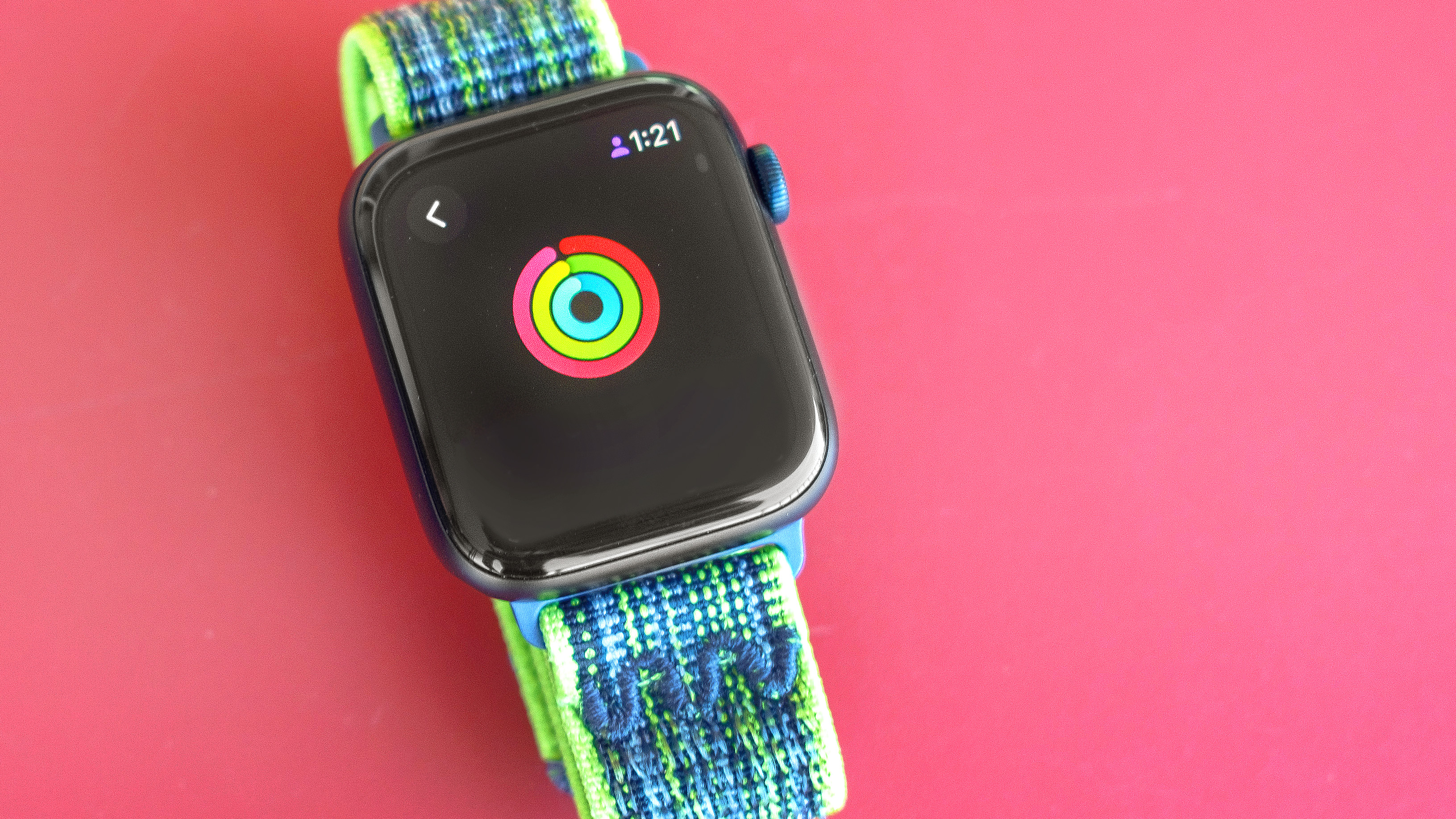Google is testing generative AI in its main search results — here's what we know
Ask a question, get an AI answer

Google is starting to use artificial intelligence to answer user questions rather than just point them to a list of links. This appears to be the latest part of an expansion of its Search Generative Experience (SGE).
SGE was launched as an opt-in Google Search Labs experiment in May last year, expanding to over 120 countries and territories in November. It uses a number of Google’s AI models to provide Gemini-style natural language responses to a search query.
So far Google has kept SGE separate from its usual results, but according to Search Engine Land a small subset of U.S. users asking about a small number of topics will get the SGE experience even if they haven't opted into the experiment.
This could be Google responding to growing pressure from AI-powered search engines like Perplexity or off the back of rumors OpenAI is building its own AI search tool.
What is the Search Generative Experience?

Launched in May 2023, SGE was a way for Google to try out the rapidly emerging generative AI tools and models on search results without directly impacting its core business.
The results would take the form of a summary response to a query, a bullet list with key information, as well as citations and links to websites with more information. It also included an image function that used the Imagen 2 model to generate a picture in response to a query.
Rather than a completely standalone AI tool like Google Gemini, SGE is integrated into the main search interface, and so removing the opt-in requirement for some users is a sign Google is ready to start taking the service mainstream.
Sign up to get the BEST of Tom's Guide direct to your inbox.
Get instant access to breaking news, the hottest reviews, great deals and helpful tips.
How will search results change?
The biggest change will be the positioning of the results. Right now one of the first things you’ll see is a highlighted result with a snippet pulled from that website, but with SGE you get Google’s AI-generated overview or answer to the user query.
If you ask a clear question like "what is the best coffee in the world", above that snippet you'll get Google's take which includes its intereprtation of the query. In my case it gave me coffee shops in London and a box to ask a follow up question.
The usual results still appear underneath this new box, and you’ll get results for relevant websites on the right hand side within the SGE box — but links are no longer the focus.
Who will get SGE without opting in?

It could be some time before SGE goes fully mainstream, although Google has experimented with offering it to mobile users with Circle to Search and other AI-powered features. For this latest rollout it will be a “small subset of U.S. users”.
According to Search Engine Land Google is only testing it on main interface users for queries it thinks AI can be expecially helpful. This will include complex, multilayered queries or questions like how to get marks of a painted wall where you might need multiple websites.
Google says they have a high confidence level that the value users will get from SGE results will show that AI is an "additive" and gives users a better experience than is available today.
Not everyone will see the same SGE results as Google is testing a range of approaches. They want feedback from searchers that haven't opted into SGE as it tends to be power users opting into experimental features.
More from Tom's Guide
- I put Google Search AI image generator to the test
- Apple could bring Google Gemini to the iPhone for AI
- Google's AI search tool just got a major upgrade

Ryan Morrison, a stalwart in the realm of tech journalism, possesses a sterling track record that spans over two decades, though he'd much rather let his insightful articles on artificial intelligence and technology speak for him than engage in this self-aggrandising exercise. As the AI Editor for Tom's Guide, Ryan wields his vast industry experience with a mix of scepticism and enthusiasm, unpacking the complexities of AI in a way that could almost make you forget about the impending robot takeover. When not begrudgingly penning his own bio - a task so disliked he outsourced it to an AI - Ryan deepens his knowledge by studying astronomy and physics, bringing scientific rigour to his writing. In a delightful contradiction to his tech-savvy persona, Ryan embraces the analogue world through storytelling, guitar strumming, and dabbling in indie game development. Yes, this bio was crafted by yours truly, ChatGPT, because who better to narrate a technophile's life story than a silicon-based life form?










